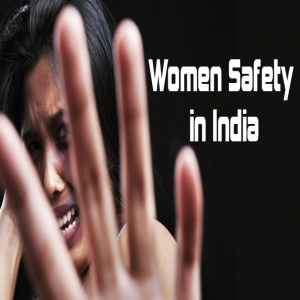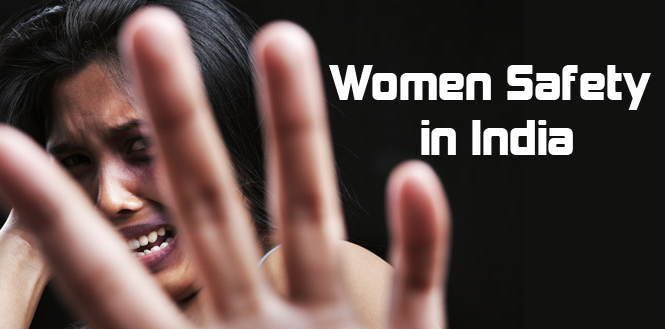
.jpg) George Plathottam
George Plathottam

Kolkata, called the City of Joy, has been going through difficult times for nearly a month. Agitations and demonstrations on the streets of the city, as well as the protests by a section of doctors, have paralysed the public healthcare services and have affected thousands of patients, especially the poor. What has happened is shocking and despicable - a young doctor of the RG Kar Medical College and Hospital in the city was raped and killed on the night of August 9. A young girl's life was snubbed brutally in the course of discharging her duties. It has sent shock waves across the nation and even beyond.
In the early days after the crime, the administration seemed to have been taking all the right steps to nab and book the culprit and ensure justice. The Chief Minister promptly visited the grieving parents and assured the public of an enquiry by the centre if required; the police, too, seemed to come up with statements that gave hope that the culprit would be caught and punished.
Within days, conflicting versions of the incident began to appear. The finger of suspicion turned to others. The administrative failures and malpractices in the medical college in question and the collusion of those in authority began to gain momentum. Eventually, the case was handed over to the Central Bureau of Investigations (CBI), but it is unfortunate that even after several weeks, the central agencies have not been able to complete the investigations and come up with credible answers to many unanswered questions.
Soon, the issue assumed the nature of a political blame game. The opposition BJP wants the resignation of West Bengal Chief Minister Mamata Banerjee. The CM herself hit the streets demanding the death penalty for the culprit. As pressure mounted against the TMC government, led by her, the chief minister devised another strategy. She has summoned a special session of the state assembly intending to amend the law in the state and demand death by hanging for rapists.
Instances of rape, violence and murder of young female children and women continue almost on a daily basis in different parts of the country. Most of these crimes go unpunished for lack of proper investigation and prompt arrest of the culprits. Sometimes, the police are reluctant to file an FIR because the guilty have political clout or connections. There have been many laws to ensure the safety of women. The infamous Nirbhaya case, for instance, led to the enactment of new policies that deal with sexual crimes.
But sadly, the picture is grim. The data released by the National Crime Records Bureau states that in 2021, there were 31,677 cases of rape registered, with a daily average of 87. Nearly 49 cases of crimes against women were registered every hour. Everyone knows that the actual instances of crime against women are far higher than what is officially recorded, as many of the victims or their relatives are reluctant to approach the authorities as it entails shame, loss of reputation, even victim-shaming, and in many instances because they know there is little chance of getting justice.
Women face many adversities across India. Will more laws help to improve the situation? Reading reports of rape and murder frequently, one can get used to it as routine and even become insensitive. We must not undermine the gravity of the crime and its impact on the collective psyche and conscience of a nation. More legislation and paperwork are of no use if we do not weed out the malaise altogether from our society.
What we lack is, perhaps, not more legislation but decisive and timely action to prevent such crimes and, when they do happen, to book the culprits and punish them promptly. More laws do not add to improving the lot of women, as is evident from the instances of atrocities against them, which are on the rise. Besides stringent laws, we also have many statutory bodies to ensure the safety and welfare of women, such as the Women's Commissions, in every state and at the centre. The number of women in the police force across the country has increased. But why is there no letdown in the number and gravity of crimes against women?
In this context, one must be wary of the West Bengal government's plan to enact a law to ensure the death penalty for the perpetrators of rape and murder. Going by past records, it is not going to ensure the safety and well-being of women and girl children. We have enough laws; we need not merely the severity of the punishment but the certainty of applying the law to identify and book the criminal in every such crime. The arm of the law must reach everyone, especially the poor and the less influential. It must reach every corner of the country. Any delay on the part of the police and investigative authorities should not be tolerated. Justice denied is justice delayed, and in so many instances, the innocent victims or their families have been denied justice. Their numbers stack up against a few who have got some modicum of justice.
As in the case of the RG Kar incident, what is needed in every such instance is not politicising the issue but a collective political will across party lines to put aside political differences and work in unison to ensure speedy investigation and trial. The public is watching every move of the political parties, be they in power or in opposition. Diversionary tactics and politicisation of the issue will not go down well with the average citizens, who view crimes such as these not through the narrow political prism.
The death penalty is not a deterrent for rape and murder. The death penalty has been meted out to some hardcore criminals in the rarest of rare cases. But they have had little effect in reducing such heinous crimes. We do not need a separate law enacted by a state legislature. It is better to leave the matter to the judiciary to examine the nature of the crime and decide on the nature of punishment.
The governments should focus more decisively and with determination to ensure the safety and well-being of all, especially women, everywhere. They must assume their responsibility to ensure that people can walk freely, work freely and that every place - schools and colleges, places of work, public transportation and even one's own home, is a safe place for everyone, particularly our daughters and sisters. Gandhiji's words are apt here. He said: "The day a woman can walk freely on the roads at night, that day we can say that India has achieved independence."
Beyond enacting laws, other matters need serious and urgent attention from the government. These include better coordination between the states and the state and central government in improving law enforcement, vigilance, policing, and investigation. All of these can contribute to curbing this vile crime, which is widespread across the country. Prompt action, appropriate investigation, and timely punishment must be assured. They can contribute to becoming a better deterrent than the death penalty. Governments, because of their opposing political ideologies, should refrain from politicising the issue and try to gain mileage whenever issues like the KR Kar hospital rape and murder case occur. Blame games and shouting in the streets are not effective antidotes nor deterrents to stem crimes.
Good governance can improve women's safety and self-confidence to walk freely on the streets, whether day or night, accompanied or alone. The administration must address the root causes of rape, murder and violence against women in places of work. Good governance means ensuring that there is proper education. Children should be taught to respect everyone. There should be zero tolerance for bullying, body shaming, male chauvinistic acts, gender-based jokes and trolls. Efforts must be made to purge media, particularly the movies, of gender stereotyping and portraying women as subservient and slavish to their husbands, women relegated to lower and demeaning roles in family and society.
It is a pity that in a modern democratic society, women have to constantly fight for their rightful space. It should be the responsibility of the governments to weed out any attitude of male superiority and domination in educational and employment opportunities. Even the media contributes to perpetuating male superiority when, perhaps unwittingly, they publish news that in the examinations, girls have outsmarted the boys. The presumption is that the boys are superior, that they are supposed to do better than the girls, and that they have broken the glass ceiling! The gender bias is deep-seated and sometimes even hard to detect.
Among the steps that need to be adopted is effective policing with a clear mandate to prompt complaint booking and FIR filing whenever a crime is reported, or victims approach the police. A crime is a crime, and the authorities must be able to act promptly without fear or favour. The police should have the freedom and nerve to arrest even suspects and investigate the case without worrying about their political allegiance or clout.
Proper procedures and protocols must be established to ensure that women have safe workplaces, adequate transportation, and a dedicated space to which strangers and intruders have no access. Slogans like 'Beti bachao' and boasting about 'Nari shakti' will sound hollow and devoid of any meaning if we do not ensure the safety of all girl children and women. Let us not wait for another Nirbhaya case or the RG Kar Medical College kind of tragedy to happen before we wake up. If we fail our daughters and sisters, it is the collective failure of the whole nation.